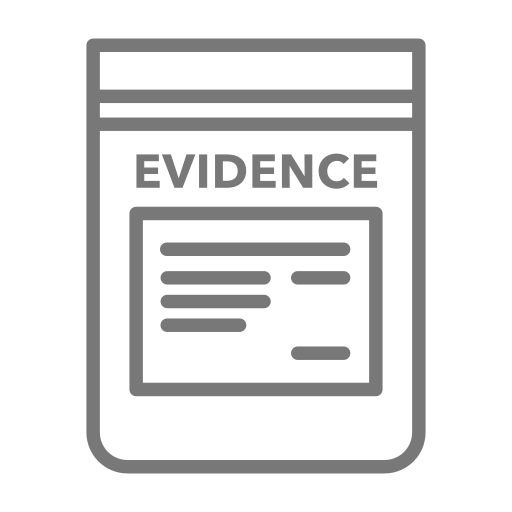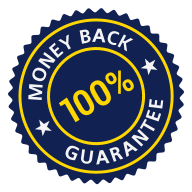Stock Trading
- Home
- <
- Stock Trading
Get your money back from Forex Trading Scams
If you’ve been ripped off by scammers, get in touch and our team of experts will work to get your money back
Scams we helped our clients recover from









How We Make It Happen

1. Assess your situation
Based on our expertise, we conduct preliminary assessments to evaluate the potential for a substantial recovery in your case.

2. Collect the necessary documentation
Diligently collecting all the required information and documentation necessary for successfully advancing your case

3. Engage with the relevant parties
Systematically addressing the relevant entities involved in enabling the unauthorized transfer of your assets.

4. Get Your Money Back
We are extremely proud of our proven track record and assure you that we will leave no stone unturned in our efforts to recover your funds.
Recover Your Lost Funds from Forex Scams
The Forex industry is a prime target for scammers. Since it is widely recognized as a legitimate investment opportunity, distinguishing between fraudulent and trustworthy brokers can be challenging for the average person. In many cases, victims don’t even realize they’ve been scammed—they simply assume they had a “bad trading day.” If you suspect that your losses were due to more than just bad luck, reach out to us. If your broker is fraudulent, we may be able to help you recover your money.

Your money back guarantee

Our experts at Ruth & Rogers make it a top priority to help our clients recover funds after they have been a victim to stock market scams. We want to raise awareness of the various types of stock fraud and how to best protect yourself. Armed with knowledge you can project your stock investments from fraud and scam.
Stock markets are a form of centralized exchange where investors buy and sell ownership (stocks) of various companies. Most stock markets worldwide are highly regulated and involve legal, nationally registered, and regulated brokers to facilitate the transfer of stock from a seller to a buyer.
Examples of regulated stock exchanges are the US-based NYSE (New York Stock Exchange) and the NASDAQ (National Association of Securities Dealers Automated Quotations). Our ability to access the stock market has never been more effortless, and the barriers to entry continue to fall every year.
But this ease of access is not without its dangers. We are all susceptible to different types of investment scams in the investment and stock world, so it is incumbent on us to do our due diligence and protect ourselves and our money from becoming victims of stock fraud and stock scams.
Is the stock market rigged?
One of the most debated questions about the stock market is whether it is rigged. Many people believe it is. In the U.S., stock markets are regulated by both government and non-government entities, such as the Securities and Exchange Commission (SEC) and the Financial Industry Regulatory Authority (FINRA). These organizations have overlapping responsibilities to oversee stock exchanges and brokerage firms that facilitate stock trading. However, regulation does not eliminate all fraud and misconduct.
Throughout history, companies have intentionally misled investors or engaged in illegal business and accounting practices, as seen with Enron and Valeant Pharmaceuticals. Fraudsters have also lured investors into Ponzi schemes, with Bernie Madoff being one of the most infamous examples.
Even some regulated online brokers fail to uphold their fiduciary duties to clients. A recent example is Robinhood’s controversial actions during the 2022 GameStop trading frenzy. While the stock market carries risks and there are bad actors looking to exploit investors, the vast majority of brokers and exchanges operate in a legitimate, ethical, and legal manner.
Ponzi Scheme
One of the most infamous stock fraud schemes in history is the Ponzi scheme, which operates by using funds from new investors to pay returns to earlier investors. Typically, new participants are recruited through referrals from existing investors, who are unaware that they are part of a fraudulent system. What makes Ponzi schemes particularly deceptive is their illusion of legitimacy, often backed by a history of seemingly consistent returns. These schemes can persist for years, sometimes even decades, before collapsing.
A notable example is Bernie Madoff, whose Ponzi scheme lasted over two decades. His financial firm was so successful that it became a leading market maker in the stock market, and he even served as the chairman of NASDAQ. However, Ponzi schemes inevitably fail because they rely on a constant influx of new investor money to sustain payouts. Common red flags associated with Ponzi schemes include phrases like “guaranteed income,” “offshore investment,” “exclusive hedge fund,” or any sales pitch that sounds “too good to be true.”
Pump and Dump (P&D)
Pump and Dump schemes are a classic and ongoing form of stock fraud, often appearing legitimate at first glance. In a P&D scheme, fraudsters promote a low-cost stock as a lucrative investment opportunity, often labeling it a “multi-bagger” (a stock with the potential for massive returns). Investors may hear claims that the stock is an emerging leader in its sector or the “next Apple or Amazon.”
These stocks are usually publicly traded on regulated exchanges like NASDAQ and priced between $1.00 and $10.00. The scam works as follows: fraudsters buy the stock at a low price, aggressively market it to drive up demand, and then sell their holdings once the price surges. This leaves unsuspecting investors holding devalued shares while the scammers walk away with substantial profits.
Penny Stock Scams
Penny stock scams are among the oldest forms of stock fraud, frequently intertwined with pump and dump schemes. These scams promote low-priced stocks as “hidden gems” with the promise of extraordinary returns, luring investors into what is essentially a get-rich-quick scheme.
While “penny stock” traditionally referred to stocks worth just a few cents, today the term broadly applies to low-value stocks that are often traded outside major exchanges like the NYSE. Modern penny stock scams frequently involve OTC (Over The Counter) markets or Pink Sheets, where stocks are not subject to the same regulatory scrutiny. Unlike stocks traded on major exchanges, these securities are often purchased directly from the issuing company or through unregulated brokers, increasing the risk of fraud.
Stock scam and fraud FAQ
What is SEC Rule 10b-5?
SEC Rule 10b-5 simply states that it is unlawful to commit fraud or deceit on anyone. This involves practices listed above, but it also includes untrue information and even information that is omitted.
Is it illegal to manipulate stocks?
Is the stock market a pyramid scheme?
No, the stock market is not a pyramid scheme. Like those who run Ponzi schemes, some fraudsters run pyramid schemes – but the stock market itself is not a pyramid scheme.
How can we help you get your money back?
Ruth & Rogers specializes in the recovery of money from people who have fallen victim to fraud and scam artists. Ruth & Rogers uses an exhaustive process to investigate and go after those who have wronged you deeply.

Elevating Customer Experience.
Contact Us
Mon-Fr: 10:00-19:00 GMT
Sat – Sun: Closed
📍 Paul-Nevermann-Platz 53 Schweinfurt Germany
📞 Germany +49 3221 224 8020
📞 UK +44 7507 065 127
Copyright © 2024 Ruth & Rogers. All rights reserved.


